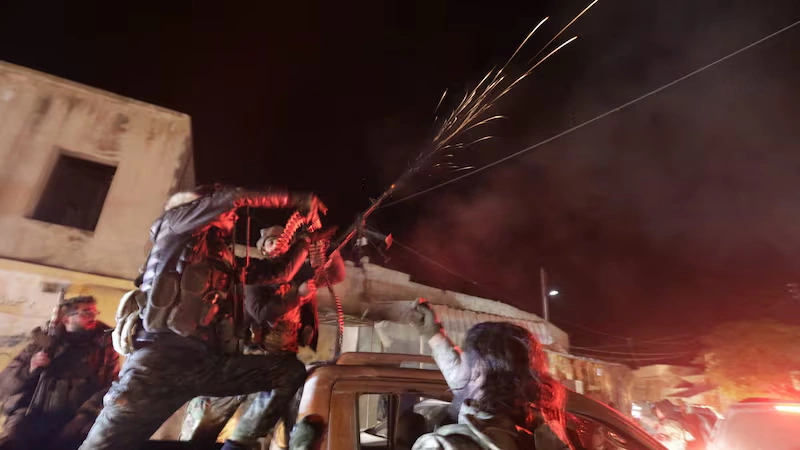Across the Middle East, many are concerned that as one conflict seems to ease in Lebanon, a long-dormant civil war in Syria is quickly reigniting. This week’s swift offensive by anti-government rebels in northwest Syria, which overwhelmed government forces, is a stark reminder that unresolved conflicts can erupt again without warning.
For some civilians who had fled to Idlib following the Syrian government’s retaking of Aleppo in 2016, this development means they might finally return to their homes.
However, reports of new convoys of civilians fleeing the city, a place marked by immense suffering during the war and the devastating 2023 earthquake, have raised fears. The rebel coalition responsible for the attack has links to extremist groups, adding to the unease.
The group behind the offensive, Hayat Tahrir Al Sham (HTS), was previously affiliated with Al Qaeda but claimed to have severed ties in 2016. While it consists of various militant factions, reports suggest its distancing from extremism may be more of a public relations move than a genuine shift in ideology, according to the Centre for Strategic and International Studies.
The government’s swift loss of territory suggests its forces were caught off guard despite the rebels’ months of preparation. This reflects a larger issue in resolving Syria’s war: the absence of a unified and effective political system to govern a territorially united country. Currently, Syria remains fragmented into zones controlled by state forces or militias, each backed by different foreign powers.
The renewed fighting has sparked reactions across the Arab world. UAE President Sheikh Mohamed emphasized solidarity with Syria, stressing the importance of combating terrorism and supporting the country’s unity and sovereignty. Jordan’s Foreign Minister Ayman Safadi expressed support for Syria’s territorial integrity, while Iraq’s Prime Minister Mohammed Shia Al Sudani highlighted Syria’s stability as vital to Iraq’s security.
Meanwhile, the US, UK, France, and Germany released a joint statement urging a Syrian-led political solution. UN Special Envoy Geir Pedersen called for implementing Security Council resolution 2254, which outlines steps for a nationwide ceasefire and measures to address terrorism. These calls underscore the pressing need for a comprehensive political resolution to the conflict.
Countries like Russia and Turkey, deeply involved in Syria, must also take responsibility for ending the violence. While negotiating peace has been fraught with failures, such as the stalled Astana Process led by Turkey, Russia, and Iran, the Syrian people deserve a genuine and lasting solution.
Whether this week’s developments will lead to significant political changes remains uncertain. However, it is clear that maintaining the current frozen conflict is not a sustainable option if it ever was.





